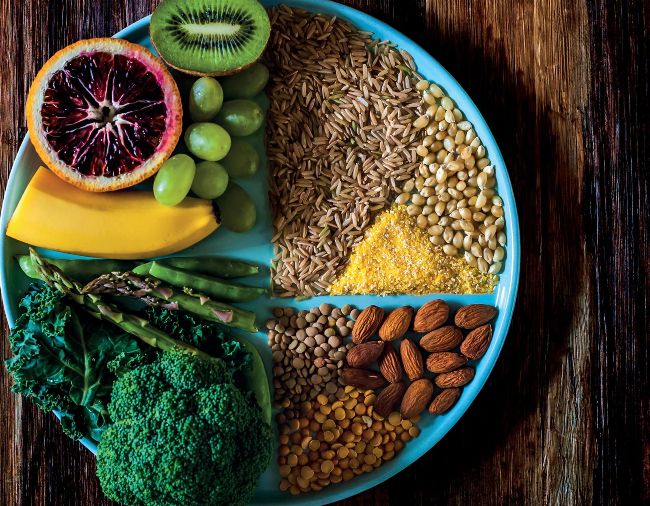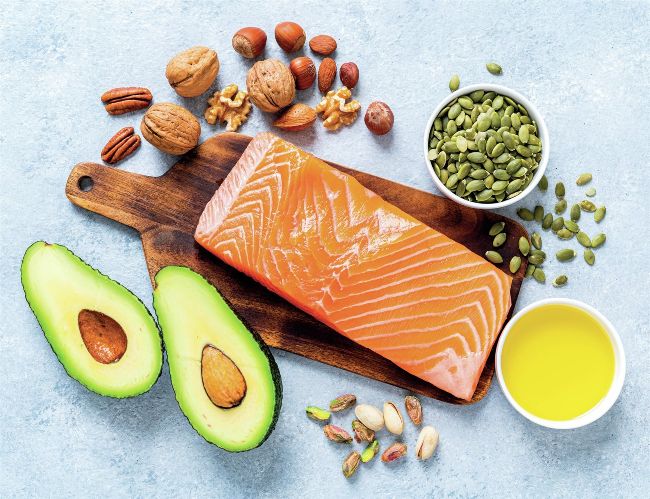Balance
Know your... MACROS
Nutrition needn’t be a dark art: here’s how to divide up your dinners so you’re getting exactly the right amounts of fat, carbs and protein to help you run further and get stronger
Words: Charlie Watson
s

Divvy up your macros like a pro and run better than ever
Almost everything we eat is made up of macronutrients. They give us energy and each of the three – protein, carbohydrate and fat –has a set of properties that influences our health and supports essential bodily functions. Alcohol is also a macronutrient, but because it’s not essential for survival, it’s not often included when discussing healthy diets.
Each macronutrient consumed adds to your caloric total. There are 4 kcals in every gram of carbohydrate and protein, 9 calories in every gram of fat, and alcohol comes in at 7 calories per gram.
The optimal macronutrient breakdown of a healthy diet is a topic of much debate among scientists. Currently, the Scientific Advisory Commission on Nutrition (SACN) recommends that the UK population make up 50% of their total dietary energy from carbohydrates. However, some research suggests that endurance athletes could get up to 60-70% of their total calories from carbohydrates.
SACN does not give a protein recommendation, but suggests that up to 35% of total dietary calories come from fat (with no more than 10% of total caloric intake coming from saturated fats).
As runners, we want to match our macronutrient split to our training/ lifestyle needs. For example, long runs and high-intensity training require more carbohydrates and overall calories or, as Sports Dietitian Meghann Featherstun coins it, ‘more miles, more carbs’.
Breaking a diet down into actual calories/grams of macronutrient is specific to each individual. You need to take into account your activity level, body mass and goals such as weight loss, weight gain, improving strength, and fuelling for marathon training. For those chasing strength goals, increasing protein helps support muscle recovery; those of you with endurance goals will need a bigger skew towards carbohydrates to ensure glycogen stores are topped up.

One salmon fillet offers 20-30g of protein, a tin of tuna is 25g, four eggs are 24g, and a cup of Greek yoghurt is about 20g
• As a rough guide, the NHS recommends that the average woman eats 2,000kcals per day, and the average man needs 2,500kcals (this is based on the UK average and does not take activity, weight/height into account).
Leggete l'articolo completo e molti altri in questo numero di
Women’s Running
Opzioni di acquisto di seguito
Se il problema è vostro,
Accesso
per leggere subito l'articolo completo.
Singolo numero digitale
Sep 2024
Questo numero e altri numeri arretrati non sono inclusi in un nuovo
abbonamento. Gli abbonamenti comprendono l'ultimo numero regolare e i nuovi numeri pubblicati durante l'abbonamento.
Women’s Running
Abbonamento digitale annuale
€42,99
fatturati annualmente